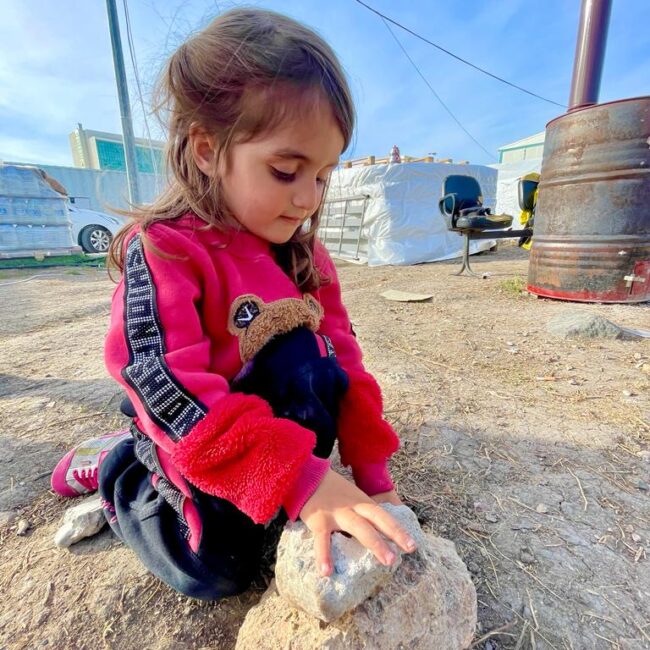
Expat in Turkey – Chicken Breast
By Mona Al Sakka
Welcome to Istanbul, where East meets West and tradition blends with modernity. As an expat woman, living in this captivating city can be a thrilling adventure filled with new experiences and opportunities. However, it’s important to acknowledge the unique challenges we face along the way. In this blog post, I’ll be sharing some insights and personal anecdotes to shed light on the language barrier and how we can overcome it.
Language Barrier:
Picture this: You’ve just arrived in Istanbul, filled with excitement and anticipation for your new life. But as you step off the plane, you quickly realize that communicating with locals is not as easy as you thought. Turkish, the primary language spoken here, may seem like an insurmountable obstacle at first. However, fear not! There are ways to conquer this language barrier and thrive in your new surroundings.
Allow me to share some of my personal experiences related to the language challenges I encountered during my initial months in Istanbul. Recognizing the importance of learning Turkish to ease my daily life, I decided to enroll in a Turkish language institute for beginners. Excitement filled me as I had previously learned Spanish in just six months, surpassing my expectations. Hence, I believed that Turkish would be similarly manageable, especially since the institute promised to complete three levels (A1, A2, B1) within three months. It sounded incredible to me at the time.
The first week proved to be quite overwhelming. We moved quickly through six chapters, and I felt lost amidst the rush. The teacher explained that we had only one month to complete level A1, leaving no choice but to keep up with her and the other students. Frustration consumed me, leading me to speak with fellow classmates and organize a visit to the manager’s office. My intention was to voice our concerns about the schedule and request additional time to ensure a thorough understanding of the material. To my surprise, everyone else seemed content with the current arrangement. Most of them had lived in Istanbul for nearly a year, already possessing a grasp of the basics. It became apparent that I was the only one at a level below zero in terms of Turkish language proficiency.
Despite feeling disheartened, I wiped away my tears, mustered my determination and decided to rely on myself and Mr. Google Translate to complete the first level on my own. Three weeks later, I successfully finished Level A1. While my skills were not perfect, I could comprehend the majority of conversations. However, speaking fluently was still beyond my reach. In such instances, I utilized Google Translate to help with forgotten vocabulary or accurate pronunciation.
Of course, language learning is not without its hilarious mishaps. I vividly remember a comical incident when I visited my regular neighborhood supermarket to purchase my weekly groceries. I was thrilled to utilize the words I had learned in my language course, confidently saying “hello,” “good morning” and inquiring about prices, discounts or alternative options. On that particular day, I approached the supermarket butcher and asked for 1kg of veal meat. Additionally, I wanted chicken breasts but couldn’t recall the Turkish word for it. Turning to Google Translate, I entered “Chicken Breast,” and the translation provided was “Tavuk Meme.” With full confidence, I repeated the exact words Google had given me to the butcher.
To my surprise, the butcher looked at me with astonishment and requested me to repeat myself. I obliged, only to find both him and another person burst into laughter. Puzzled by their reaction, I repeated my request again, but their laughter intensified. A lady nearby noticed my confusion and approached to offer assistance. With a hand over her mouth, she tried to suppress her laughter while correcting my request, saying, “Tavuk meme NO, Tavuk gogsu.” I thanked her and hurriedly collected what I needed before heading to the cashier. Determined to distance myself from the scene, I left the supermarket, vowing never to step foot in there again.
Later, I used my phone to translate both words, only to discover that the Turkish word “meme” translates to “nipples” in English. Unbeknownst to me, I had confidently requested 1kg of chicken nipples from the butcher. That incident sealed my decision to avoid that supermarket at all costs. This humbling experience reminded me not to take myself too seriously and to embrace the inevitable language blunders along the way.
Aside from language courses, hiring a local tutor can also provide personalized guidance and help accelerate your progress. Additionally, immersing yourself in the local culture and interacting with native speakers will greatly enhance your language skills. Don’t be afraid to strike up conversations with shopkeepers, neighbors or fellow expats who have already mastered the art of navigating daily life in Istanbul.
Remember, learning a new language takes time and patience. It’s okay to make mistakes and stumble along the way. The key is to persevere and embrace each challenge as an opportunity for growth. Celebrate the small victories, no matter how trivial they may seem, and take pride in your progress.
Living as an expat woman in Istanbul can be an incredible journey of self-discovery and personal growth. Embrace the challenges, learn from your experiences and remember that each day brings new opportunities to thrive in this dynamic city. So, let’s conquer the language barrier, break down cultural barriers and create a fulfilling and vibrant life in Istanbul. The adventure awaits!

Mona Al Sakka, HR and Management Expert with a Creative Edge
Mona has accumulated over a decade of experience in HR and business management roles for various companies from banking, Commercial Bank of Dubai- Dubai to energy, Mena Energy, and yachts manufacturer, Gulf Carft Inc. – Ajman, in Dubai, UAE. She earned a Bachelor’s degree in Business Administration and Management Information System (MIS) from the University of Sharjah, UAE.




